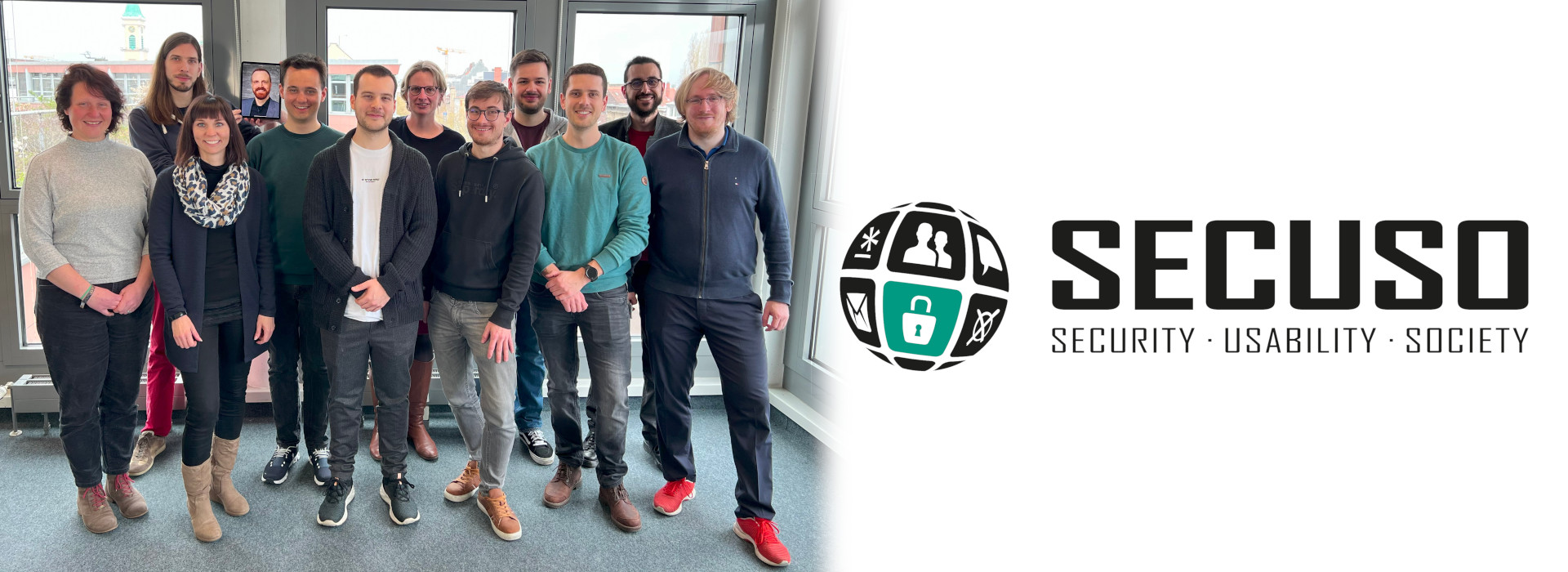The research group SECUSO (Security • Usability • Society) belongs to the Institute of Applied Informatics and Formal Description Methods (AIFB) of the Karlsruhe Institute of Technology (KIT). The group was founded in 2011 by Prof. Dr. Melanie Volkamer at the TU Darmstadt. SECUSO moved to the Karlsruhe Institute of Technology at the beginning of 2018. SECUSO is a member of Kastel, K-CIST and KD²Lab.
Peter Mayer supports the program committees of the Twentieth Symposium on Usable Privacy and Security (SOUPS 2024), the 24th Privacy Enhancing Technologie Symposiums (PETS 2024) and the European Interdisciplinary Cybersecurity Conference (EICC 2024). SOUPS 2024 takes place August 11 to 13, 2024 in Philadelphia, PA. PETS 2024 takes place July 15 to 20, 2024 in Bristol, UK. EICC 2024 takes place June 5 and 6, 2024 at the University of Thrace, Xanthi, Griechenland, statt. Registration for EICC 2024 is already possible.
EICC 2024On April 9, 2024 it's "Identity Management Day" which is a day of awareness to educate business leaders, IT decision makers, and the general public about the importance of identity management. For this, we took a look at related SECUSO research. E.g. the paper "Now I'm a bit angry": Individuals' Awareness, Perception and Responses to Data Breaches that Affected Them - where the authors asked participants in an online survey about their experiences with past data breaches. Furthermore, SECUSO participated in research quantitatively investigating the current state of PasswordManager usage at a large, private university in the US (Why Users (Don't) Use Password Managers at a Large Educational Institution). Most intersting for organisations might be the development of awareness raising materials that contributed to improve password-related security in organisations: On The Systematic Development and Evaluation Of Password Security Awareness-Raising Materials.
More research on that topicReminder: Contributions to the "Security, Usability, and Technical Issues" and "Governance of E-Voting" tracks for E-Vote-ID 2024 can still be submitted until May 15, 2024. Contributions for the "Election and Practical Experiences" track and for the PhD Colloquium can be submitted until July 10, 2024. The submission deadline for the "Poster and Demo Session" is September 15, 2024. Accepted contributions will be published either in the Springer LNCS Proceedings or via the Gesellschaft für Informatik (GI) as Open Access. E-Vote-ID 2024 will take place October 2 to 4, 2024, in Tarragona, Spain. Melanie Volkamer supports the event as General Chair together with David Duenas-Cid, Kozminski University Poland, and Peter Rønne, University of Luxembourg.
Zur KonferenzBenjamin Berens has successfully defended his doctoral thesis on March 1, 2024. The title of his work is "When Awareness Fades and There Is No Support, the Phisher Has an Easy Game". In his thesis, he analyzes three phishing awareness measures (including refresher) over different periods of time. In addition, the NoPhish video and TORPEDO are compared in terms of increased awareness and also examined as a combination. Congratulations to Benjamin!
Pictures on X